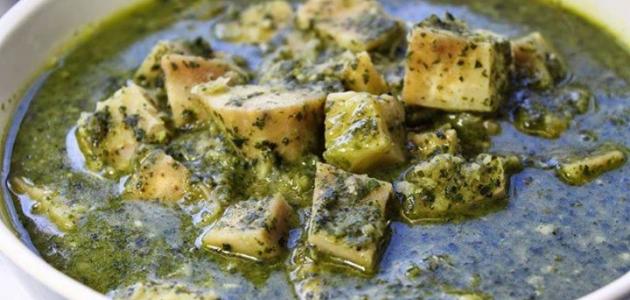太りすぎ
過剰体重は最も深刻な健康状態の一つであり、人の健康にとって悪影響のある合併症です。過剰体重は脂肪細胞の数と大きさの増加として知られており、過剰体重はいくつかの方法で評価されますが、最もよく知られているのはBMI(ボディマス指数)とウエスト周囲径です。(ウエスト周囲径)過剰体重は高血圧、糖尿病、動脈硬化、心臓病、がんなどの合併症を引き起こす可能性があります。肥満の治療は、原因、程度、そして結果として生じる合併症に基づいており、生活パターンの改善、健康的な食事、身体活動の増加、そして時には手術が解決策となることもあります。
BMI
ボディマス指数(BMI)は、肥満や体重増加を評価する際に用いられる方法の一つです。体重に基づいて体脂肪量を測定し、20歳以上の男女両方に適用されます。BMIは、筋肉量や人種とは異なり、年齢や性別を考慮しないことに注意してください。以下の表は、BMIに基づく体重分類を示しています。
| カテゴリ | BMIの値 |
|---|---|
| 減量 | 18.5未満 |
| 標準体重 | 18.5~24.9 |
| 体重増加 | 25~29.9 |
| 肥満 | 30以上 |
1週間のファストダイエット
ミリタリーダイエットは、週に3日間は低カロリーの食事をし、残りの4日間は少量のカロリーを摂取し続けながら健康的な食事をするというものです。以下では、この食事システムの詳細な説明をします。
- 最初の3日間:
| 食事 | 初日 | 2日目 | 3日目 |
|---|---|---|---|
| 朝食 | トースト 1 枚にピーナッツバター大さじ 2 杯、グレープフルーツ半分、紅茶またはコーヒー 1 杯(オプション)。 | トースト1枚、ゆで卵、バナナ半分、紅茶またはコーヒー1杯(オプション)。 | チェダーチーズ 1 枚、塩味のビスケット 5 錠、小さなリンゴ 1 個、コーヒーまたは紅茶 1 杯 (オプション)。 |
| 昼食 | トースト 1 枚、ツナ 1/2 カップ、コーヒーまたは紅茶 1 杯 (オプション)。 | ゆで卵、白チーズ 1 カップ、塩味のビスケット 5 錠、コーヒーまたは紅茶 1 杯(オプション)。 | トースト 1 枚、目玉焼きまたはゆで卵 1 個、コーヒーまたは紅茶 1 杯 (オプション)。 |
| ディナー | 肉 85 グラム、インゲン豆 1 カップ、小さなリンゴ 1 個、バナナ半分、バニラアイスクリーム 1 カップ。 | ソーセージ2本、ニンジン半カップ、ブロッコリー半カップ、バナナ半分、バニラアイスクリーム半カップ。 | ツナ1カップ、バナナ半分、バニラアイスクリーム1カップ。 |
- 残りの 4 日間:残りの 4 日間は食品グループに制限はありませんが、摂取量を減らして 1 日あたり 1500 カロリーを超えないようにし、主食の合間に軽食をとることができます。
すぐに体重を減らす
減量ダイエットは、多くの場合、余分な努力を要し、不健康で、ライフスタイルとして取り入れるのが難しいものです。実際、週に約1kgの減量は健康的な減量であり、たとえゆっくりとしたペースであっても、長期的な体重維持に役立ちます。急激なダイエットでは、健康的な食事を実践した場合ほど体脂肪を減らすことはできません。また、体から失われるのは主に水分と筋肉です。短期間で大量の脂肪を減らすのは難しいからです。
急速な減量は安全な選択肢となり得ます。正しく行えば、場合によっては、医師が急速な減量のためにカロリー制限食を処方することもあります。肥満が深刻な健康問題を引き起こし、緊急の介入が必要となる場合は、このような食事療法は医師の監督が必要であり、その後体重を維持するのは困難です。
低カロリー食のリスク
非常に低カロリーの食事療法に従うと、次のような多くの健康リスクが生じます。
- 代謝プロセスの速度低下:体が必要とするカロリーよりも少ないカロリーを頻繁に摂取すると、代謝プロセスが遅くなります。いくつかの研究によると、極端に低カロリーの食事を続けると、体のカロリー燃焼能力が約23%低下することが示されており、この影響は食事療法を中止した後も長期的に持続します。研究者たちは、これがダイエットを中止した後に減った体重が元に戻ってしまう原因だと考えています。
- 疲労感、栄養不足:低カロリー食では鉄分、葉酸、ビタミンB12が不足し、貧血や極度の疲労につながる可能性があります。また、タンパク質、炭水化物、カルシウム、ビタミンA、マグネシウムなど、重要な栄養素の摂取が制限される場合もあります。
- 生殖能力の低下:カロリー制限は、特に女性の生殖能力に悪影響を及ぼします。排卵はホルモン レベルに依存し、一部のホルモン レベルも女性の食事のカロリー量に一部依存するからです。
- 整形外科的障害:体内のエストロゲンおよびテストステロンのカロリー制限が低下し、骨の形成に影響を及ぼし、骨の劣化が進み、骨が弱くなります。
- 免疫力の低下:特に同じ期間に激しい運動を行った場合、カロリーが大幅に減少すると、体の免疫力が弱まり、感染症や病気にかかりやすくなります。



